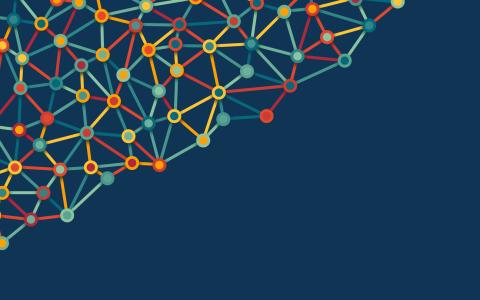Regulation, Evaluation, and Governance Lab (RegLab)
Building the evidence base and technology for effective governance
Government is tasked with solving society’s most pressing challenges. Yet it increasingly lacks the capacity to apply state-of-the-art scientific methods to modernize program administration, inform policy, and carry out core governance functions effectively and fairly. Failures of government – from an annual tax gap of $500B to an unemployment benefits systems that collapsed during the pandemic – go a long way toward explaining why trust in public institutions is at an all-time low.
Stanford's Regulation, Evaluation, and Governance Lab (RegLab) is tackling this crisis through high-impact partnerships with government agencies and nonprofits, using data science and machine learning (ML) to strengthen the public sector, conduct demonstration projects in core governance functions, build a new talent pipeline into government, and, ultimately, modernize government.
Our approach invests heavily in partnerships with government and nonprofit organizations to ensure that (a) partners benefit from cutting-edge research advances, and (b) contributions to scientific research focus on addressing the most impactful problems. This “boots on the ground” problem-centered orientation (like in recent pandemic response work) often identifies the need for novel approaches and methods in ML, data science, and social science.
Our team’s key projects include:
- Modernizing tax administration: The annual tax gap – the difference between taxes owed and taxes paid – is nearly $500B. RegLab developed methods to improve the detection of tax evasion and developed a framework for assessing and mitigating demographic disparities in tax auditing. The Internal Revenue Service (IRS) has committed to an “overhaul” of audits around the Earned Income Tax Credit (EITC), claimed by ~31M taxpayers, based on these findings. RegLab is continuing its partnership to make tax administration more effective and equitable. The lab is also improving the science of disparity assessments, applicable across domains.
- Unemployment Insurance: Through a partnership with the U.S. Department of Labor, RegLab is prototyping methods to modernize the administration of unemployment insurance (UI). Such modernization is acutely needed. To illustrate, while over 90% of UI payments were timely at baseline, timeliness dropped to just above 50% right as the urgency of UI needs spiked with the pandemic, with as many as 46M Americans relying on UI.
- Environmental Sustainability: In 2020, between 60-75% of major facilities permitted under the Clean Water Act self-reported being in noncompliance, and as a result, tens of millions of Americans are exposed to pollution hotspots and unsafe drinking water. RegLab is developing partnerships with federal and state Environmental Protection Agencies to develop data-driven compliance systems, including the use of remote sensing and computer vision to develop an environmental monitoring system of the future.
- Innovation Ecosystem and Technology Governance: From in-depth collaborations, RegLab advances recommendations for how to improve the public sector innovation ecosystem, such as through talent exchanges, digital infrastructure, and public sector investments. Recommendations made in May 2023 Senate testimony were advanced in the subsequent AI Executive Order and Office of Management and Budget memorandum.

Professor, Law; Professor, Political Science; Faculty Director, RegLab; 2023-2024 Investment Advisory Council

Research Manager, RegLab

Research Director, RegLab

Executive Director, RegLab
Related Links:
- San Francisco wants to use AI to save itself from bureaucracy [Politico, June 5, 2025]
- AI for Scaling Legal Reform: Mapping and Redacting Racial Covenants in Santa Clara County [arXiv, February 12, 2025]
- Cutting Through “Policy Cruft” [Niskanen Center, October 30, 2024]
- AI Seeks Out Racist Language in Property Deeds for Termination [Bloomberg Law, October 17, 2024]
- Stanford RegLab, Princeton, and the County of Santa Clara Collaborate to Use AI to Identify and Map Racial Covenants From Over 5 Million Deed Records [Stanford Law School News, October 17, 2024]
- Cybench: A Framework for Evaluating Cybersecurity Capabilities and Risks of Language Models [arXiv, August 15, 2024]
- Hallucination-Free? Assessing the Reliability of Leading AI Legal Research Tools [arXiv, May 30, 2024]




